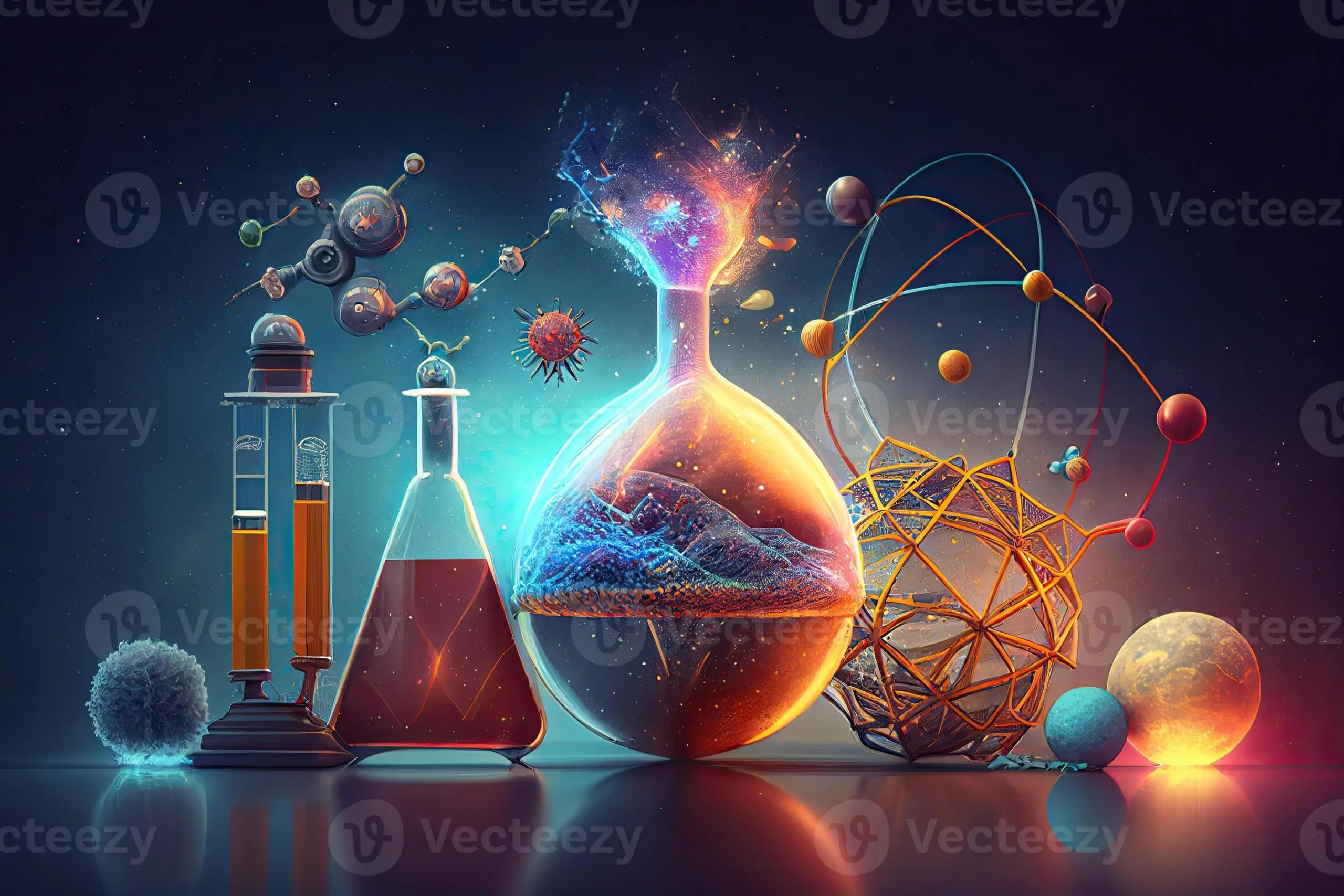Why Is Science Interesting: How Science Shapes Our World

Introduction
Science inspires and advances humanity like few other fields. The constant quest of knowledge aims to explain the world, solve complicated issues, and promote innovation. Why Is Science Interesting by curiosity and knowledge, which has led to some of the greatest discoveries and technical advances in history. The natural environment has fascinated our predecessors since the dawn of civilization. Old astronomers charted the sky, chemists found material qualities, and biologists documented living variety. These early studies created the framework for contemporary Why Is Science Interesting, which is now highly organized and methodical.
The Essence of Science: Curiosity and Discovery
Science is fundamentally about curiosity and the quest for understanding the world around us. This innate curiosity drives scientists to explore, experiment, and discover new knowledge. The essence of Why Is Science Interesting lies in its systematic approach to uncovering the mysteries of the universe, from the tiniest particles to the vastness of space. It is this relentless pursuit of knowledge that makes science so fascinating. The process of scientific discovery is often thrilling, filled with moments of breakthrough and revelation that can change our understanding of the world.
Why Is Science Interesting is about asking questions and seeking answers. It is a discipline that encourages critical thinking, skepticism, and the willingness to challenge established beliefs. This approach fosters a deeper understanding of natural phenomena and the principles that govern them. For instance, the simple question of why apples fall from trees led Isaac Newton to develop the theory of gravity, fundamentally altering our perception of the universe. Such examples highlight how scientific inquiry can lead to profound insights and advancements.
The Historical Impact of Scientific Discoveries
Throughout history, scientific discoveries have played a pivotal role in shaping human civilization. The Renaissance period, often referred to as the Age of Enlightenment, marked a significant shift in human thought, driven by scientific exploration and discovery. Figures like Galileo Galilei, Johannes Kepler, and Leonardo da Vinci made groundbreaking contributions that challenged the traditional views of their time and laid the foundation for modern Why Is Science Interesting.
Galileo’s use of the telescope to observe celestial bodies provided concrete evidence supporting the heliocentric model of the solar system, which placed the Sun at the center rather than the Earth. This challenged the long-held geocentric model endorsed by the Catholic Church and reshaped our understanding of the cosmos. Similarly, Kepler’s laws of planetary motion described the elliptical orbits of planets, providing a more accurate depiction of their movements.
The Role of Science in Modern Technology
Science is the backbone of modern technology, driving innovation and development in various sectors. The digital age we live in today is a testament to the remarkable advancements made possible by scientific research. The development of the internet, for instance, revolutionized communication and information sharing, making the world more connected than ever before.
The field of electronics has been particularly transformative. The invention of the transistor in the mid-20th century paved the way for the development of computers, smartphones, and other digital devices that have become integral to our daily lives. These devices have not only changed how we communicate but have also revolutionized industries such as healthcare, education, and entertainment.
Science and Everyday Life: Practical Applications
Science is not confined to laboratories and research institutions; it permeates every aspect of our daily lives. From the food we eat to the air we breathe, scientific principles and discoveries play a crucial role in ensuring our well-being and quality of life. The agricultural sector, for example, relies heavily on scientific research to develop high-yield, pest-resistant crops that can feed the growing global population.
The principles of chemistry and biology are applied in the development of fertilizers, pesticides, and genetically modified organisms (GMOs) that enhance agricultural productivity. Advances in food Why Is Science Interesting have also led to the creation of safer, more nutritious food products, with longer shelf lives and better taste.
The Influence of Science on Culture and Society
Science has a profound influence on culture and society, shaping our worldview and informing our values and beliefs. The scientific method, with its emphasis on evidence and rationality, has become a cornerstone of modern thought and has influenced various aspects of human culture, including philosophy, art, and literature.
The Enlightenment period, for instance, saw the emergence of a new intellectual movement that emphasized reason, empiricism, and skepticism. This movement, heavily influenced by scientific discoveries, led to significant cultural and societal changes, including the promotion of individual rights, the separation of church and state, and the advancement of democratic principles.
The Educational Value of Science
Science education plays a crucial role in shaping the minds of future generations and fostering a culture of inquiry and critical thinking. By teaching scientific principles and the scientific method, educators equip students with the tools they need to understand and navigate the world around them. This foundation is essential for developing problem-solving skills and a lifelong love of learning.
Science education also promotes curiosity and creativity. Encouraging students to ask questions, conduct experiments, and explore their surroundings helps them develop a deeper appreciation for the natural world. Hands-on learning experiences, such as laboratory experiments and field trips, make science more engaging and accessible, allowing students to see the real-world applications of what they are learning.
The Ethical Dimensions of Scientific Research
Scientific research often raises important ethical questions and dilemmas. As scientists push the boundaries of knowledge and explore new frontiers, they must also consider the potential consequences of their work. Ethical considerations are essential for ensuring that scientific advancements benefit society while minimizing harm.
One of the most significant ethical issues in science is the use of human subjects in research. Ensuring the safety, dignity, and rights of research participants is paramount. Historical examples, such as the Tuskegee Syphilis Study and the experiments conducted by Nazi doctors during World War II, highlight the importance of ethical oversight and the need for stringent regulations and guidelines to protect human subjects.
The Future of Scientific Exploration
The future of scientific exploration holds immense promise and potential. As technology continues to advance, scientists are equipped with increasingly sophisticated tools and techniques to explore the unknown. From the depths of the oceans to the far reaches of space, the next frontier of scientific discovery is boundless.
One of the most exciting areas of future scientific exploration is space. The recent advancements in space technology, including reusable rockets and the potential for manned missions to Mars, are opening up new possibilities for exploration and colonization. Organizations like NASA, SpaceX, and the European Space Agency are at the forefront of these efforts, seeking to answer fundamental questions about the origins of the universe, the possibility of extraterrestrial life, and the future of human space travel.
Science and Innovation: Driving Progress
Innovation is the lifeblood of scientific progress. The continuous cycle of discovery, invention, and application drives advancements in technology, medicine, and industry. Scientific research fuels innovation by providing new knowledge and insights that can be translated into practical applications and solutions.
One of the key drivers of innovation is interdisciplinary collaboration. By bringing together experts from different fields, interdisciplinary research fosters the exchange of ideas and perspectives, leading to novel solutions and breakthroughs. For example, the development of modern medical imaging technologies, such as MRI and PET scans, resulted from the collaboration between physicists, engineers, and medical professionals.
The Global Perspective: Science and International Collaboration
Science is a global endeavor that transcends national boundaries. International collaboration in scientific research fosters the exchange of knowledge, resources, and expertise, leading to more robust and comprehensive discoveries. Many of the world’s most pressing challenges, such as climate change, infectious diseases, and food security, require collaborative efforts on a global scale.
One prominent example of international collaboration is the Large Hadron Collider (LHC) at CERN, the European Organization for Nuclear Research. The LHC is the world’s largest and most powerful particle accelerator, and its construction and operation involve scientists and engineers from around the world. The discovery of the Higgs boson in 2012, a milestone in particle physics, was made possible through this collaborative effort.
Science Communication: Bridging the Gap Between Scientists and the Public
Effective Why Is Science Interesting communication is crucial for bridging the gap between scientists and the public. It ensures that scientific knowledge is accessible, understandable, and relevant to society. By communicating complex scientific concepts in a clear and engaging manner, scientists can foster public understanding and support for scientific research.
One of the key challenges in science communication is combating misinformation and pseudoscience. In an age where information is readily available, it is essential to promote accurate and evidence-based information. Scientists and science communicators play a vital role in addressing misinformation, debunking myths, and promoting scientific literacy.
The Inspirational Power of Science
Science has the power to inspire and captivate the human imagination. It encourages us to look beyond the ordinary and explore the unknown, sparking a sense of wonder and curiosity. The stories of scientific discovery, filled with moments of insight and perseverance, serve as powerful reminders of the potential of human ingenuity and creativity.
The awe-inspiring images of distant galaxies captured by telescopes like the Hubble Space Telescope remind us of the vastness and beauty of the universe. The intricate structures of cells and molecules revealed through advanced microscopy highlight the complexity and elegance of life. These images and discoveries not only expand our knowledge but also evoke a deep sense of wonder and appreciation for the natural world.
Conclusion
Why Is Science Interesting fascinates us because it shapes and improves our worldview. Its core is curiosity and a desire to understand the cosmos. Science affects every part of our life, from daily technology to medical advances that improve our health. The history of scientific discovery shows how science has changed human society. From Renaissance paradigm leaps to digital era technological wonders, science has increasingly extended human knowledge and capabilities. Each physics, biology, or environmental science discovery has advanced our understanding and led to practical improvements that advance society.
FAQs
Why is science important?
Science is crucial because it helps us understand the natural world and solve complex problems. It drives technological innovation, improves healthcare, and addresses global challenges like climate change. By employing the scientific method—observing, experimenting, and analyzing—we gain insights that lead to practical solutions and advancements. Science not only enhances our quality of life but also fosters critical thinking and curiosity, making it fundamental to progress and discovery.
How does science impact our daily lives?
Science impacts our daily lives in numerous ways. It underpins technologies like smartphones, medical devices, and home appliances that make life more convenient and efficient. Scientific research improves health through vaccines, medicines, and diagnostic tools. It also influences environmental practices, from energy-efficient technologies to sustainable agriculture. Overall, science enhances our quality of life by providing solutions and innovations that address everyday needs and challenges.
What makes science interesting to people?
Science captivates people by offering answers to profound questions and revealing the mysteries of the universe. Its process involves exploration and discovery, sparking curiosity and wonder. The thrill of uncovering new knowledge, combined with the potential to make groundbreaking discoveries, keeps science engaging. Additionally, science often leads to practical applications that can improve lives, which adds an element of relevance and excitement to the pursuit of understanding.
How does science contribute to technological advancements?
Science contributes to technological advancements by providing the foundational knowledge needed for innovation. Through research and experimentation, scientists discover new principles and materials that lead to technological breakthroughs. For instance, the understanding of electromagnetism led to the development of electronics, while advances in chemistry have resulted in new materials and pharmaceuticals. These discoveries are then applied to create new technologies that improve various aspects of life, from communication to transportation.
What role does science play in solving global challenges?
Science plays a critical role in solving global challenges by providing evidence-based solutions and innovations. It helps address issues like climate change through research on renewable energy and sustainability. In public health, science contributes to combating diseases through vaccines and treatments. Environmental science informs conservation efforts and resource management. By understanding complex systems and developing new technologies, science helps create strategies to mitigate and adapt to global challenges.
How can science communication be improved?
Making difficult topics understandable and entertaining helps improve science communication. Explaining scientific concepts requires clear language, visuals, and accessible examples. Science becomes more accessible by engaging people through social media, podcasts, and public lectures. Dialog between scientists and the public may also improve scientific knowledge and dispel myths.
Why should people support scientific research?
Research advances society and resolves important concerns, therefore supporting it is crucial. Technology, medicine, and environmental solutions result from research. Science investments promote continuing investigation and discovery, improving public health, economic prosperity, and quality of life. Supporting research encourages education and curiosity, motivating future scientists and innovators to solve complicated problems.
For More Information… clack here..










